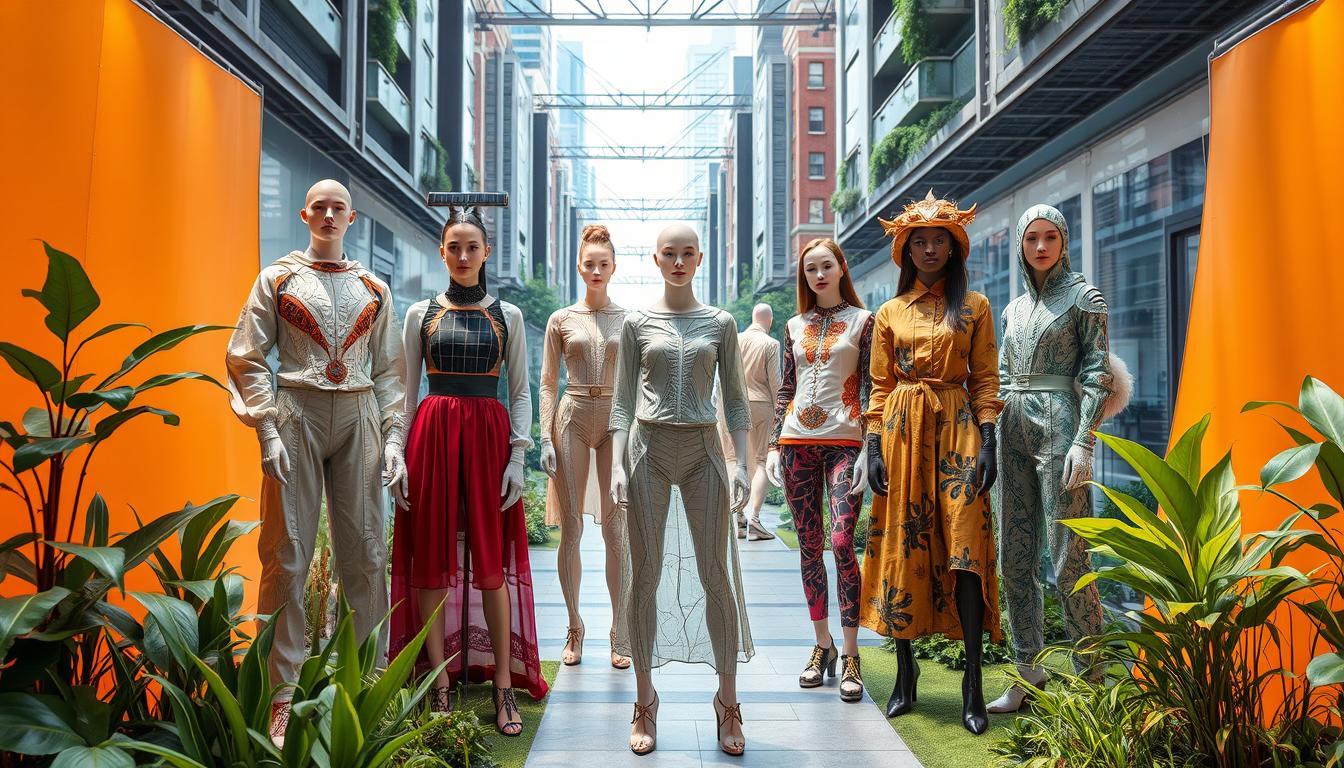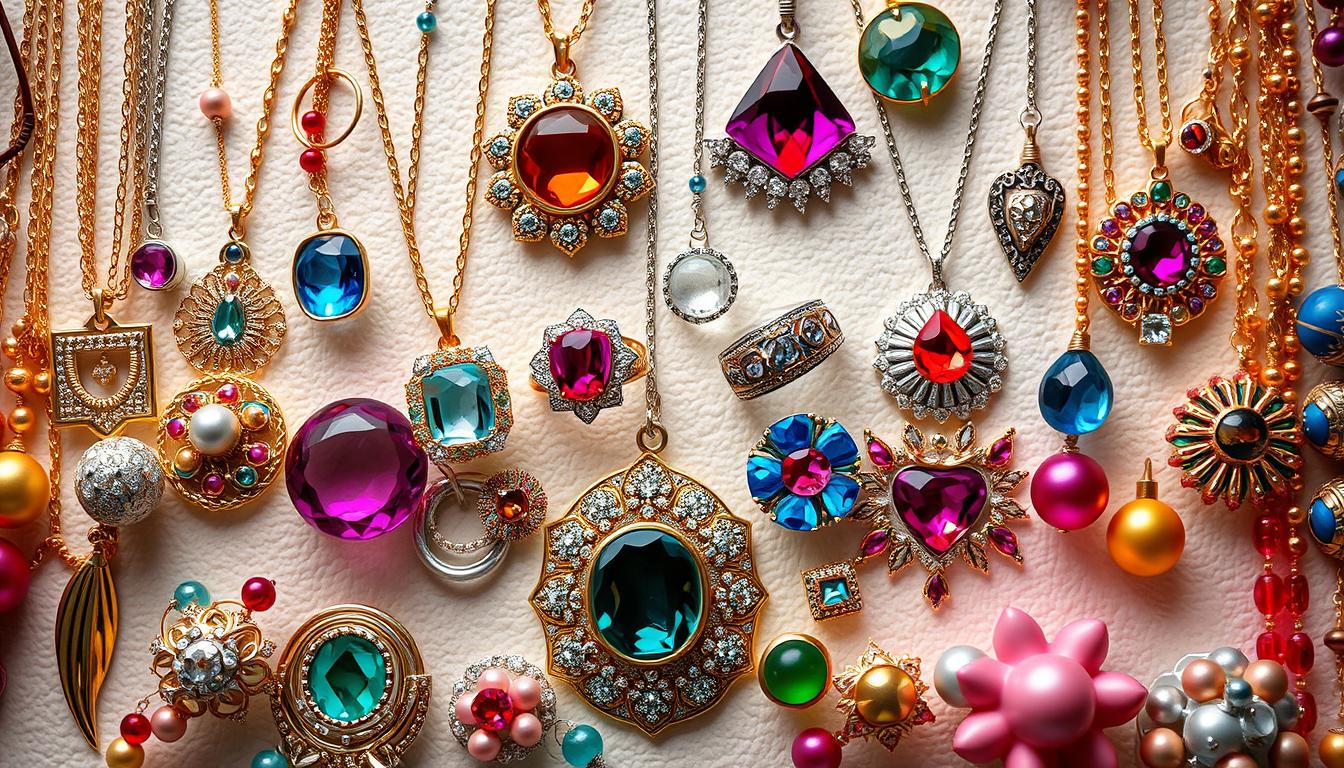We’re excited to explore the latest eco-friendly fashion trends. These trends are changing how we see sustainable clothing. As people learn more about fast fashion’s harm, demand for green fashion grows.
Now, we’re seeing a move towards eco-friendly fashion. This shift not only cuts down on carbon emissions but also makes a bold statement.
Looking at sustainable clothing styles, we find new ways to live eco-friendly. From using sustainable materials to supporting ethical production, the future of fashion is bright.
Introduction to Sustainable Fashion
Fashion and sustainability go together, and it’s time to act. By choosing eco-friendly fashion, we can cut waste, save resources, and support fair labor. In this article, we’ll explore sustainable clothing styles and their benefits.
We’ll see how eco-friendly fashion is changing our views on fashion. It’s a shift from just looking good to doing good for the planet.
Key Takeaways
- Eco-friendly fashion trends are on the rise, thanks to growing demand for sustainable clothing.
- Green fashion evolution is changing our views on fashion, from making to wearing.
- Eco-friendly fashion is not just good for the planet; it also makes a statement.
- Sustainable clothing styles are becoming key, focusing on reducing waste and supporting fair labor.
- By choosing eco-friendly fashion, we can lower our carbon footprint and support a greener future.
- The future of fashion looks bright, with new materials and production methods on the horizon.
Understanding Eco-Friendly Fashion
Exploring eco-friendly fashion trends is key to understanding sustainable practices in the industry. Making smart choices about our clothes can help the environment. By choosing eco-friendly fashion, we support a greener future.
The sustainable fashion forecast shows a move towards green practices. This includes cutting down on waste and using recycled stuff. It’s all about ethical consumerism trends, where people care about the planet and its people. We’ll see how important transparency and accountability are in making clothes.
The Importance of Sustainable Practices
Sustainable practices are essential to lower the fashion industry’s carbon footprint. Some important steps include:
- Using recycled materials
- Reducing waste
- Using energy-efficient ways to make clothes
Ethical Sourcing and Transparency
It’s important to make sure clothes are made right. This means respecting workers and the environment. We can do this by:
- Supporting fair labor
- Backing local and organic farming
- Pushing for clear supply chain information
By going for eco-friendly fashion and supporting sustainable trends, we can make a difference. As consumers, we can lead the way by choosing wisely and pushing for ethics.
Materials Redefined
The fashion world is changing, with a big push towards eco-friendly trends. People want clothes that are good for the planet. This has led to new materials that are stylish and kind to the environment.
There are many choices for those who care about the planet. Organic cotton is a favorite because it’s grown without harmful chemicals. Recycled fabrics are also popular, as they cut down on waste and save resources.
Here are some benefits of using sustainable materials:
- Less harm to the environment
- More efficient use of resources
- Lower carbon footprint
Looking ahead, materials will be key in eco-friendly fashion. By picking sustainable clothes, we help the planet. New bio-fabrics, like plant-based materials, open up endless possibilities for green fashion.
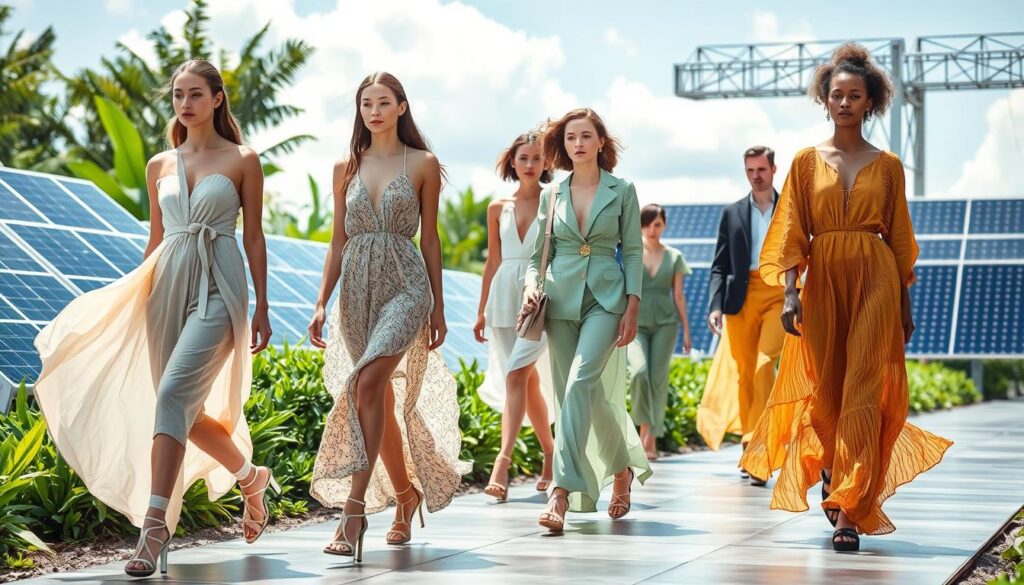
By choosing sustainable materials, we make fashion better for the planet. As we move forward, it’s vital to focus on eco-friendly choices and support green fashion.
The Rise of Upcycling
Looking ahead, upcycling is key in eco-friendly fashion trends. It turns old clothes into new, unique items. This reduces waste and supports sustainable fashion growth. It’s good for the planet and lets people show off their style in creative ways.
Upcycling is changing how we see fashion. It’s part of the growing sustainable fashion movement. People want to lessen their environmental impact, and upcycling helps. It’s about making new clothes from old ones and finding brands that upcycle.
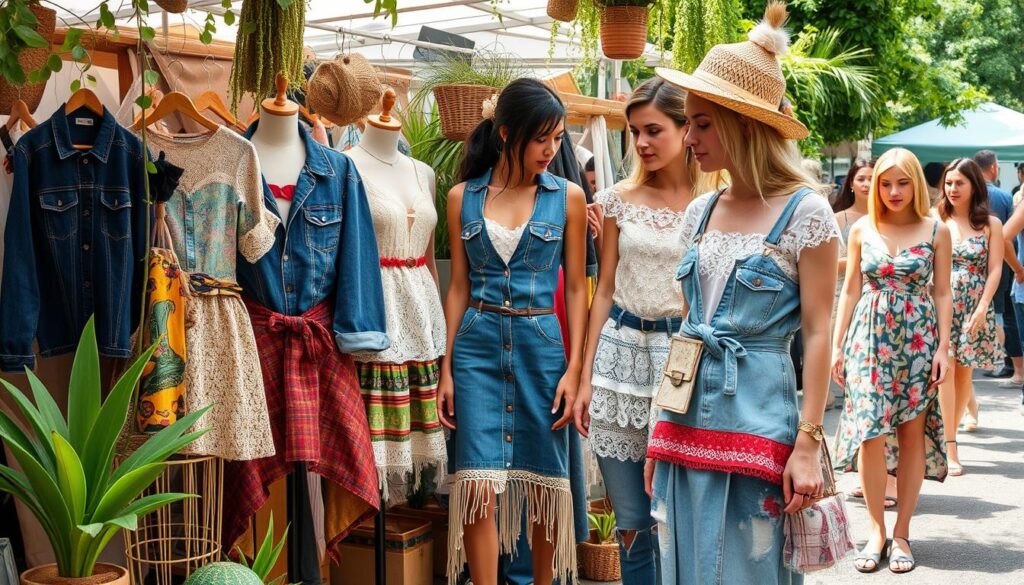
Some brands are leading the way with upcycling. They create stylish, innovative designs from recycled materials. These brands push the sustainable fashion trend forward. They inspire us to think differently about our clothes.
Minimalism Meets Fashion
Nowadays, we’re moving towards minimalism in fashion. This trend focuses on simplicity, sustainability, and choosing clothes that are good for the planet. By embracing minimalism, we can lessen our environmental footprint and have a more organized closet.
Investing in sustainable clothes that last is a smart move. This way, we buy fewer items but focus on their quality. Minimalism in fashion brings several benefits, such as:
- Less waste and better for the planet
- Save money by buying fewer, better items
- A tidy and easy-to-manage wardrobe
The Capsule Wardrobe Concept
The capsule wardrobe idea is a key part of minimalism. It means having only the essentials that can be worn in many ways. By choosing eco-friendly clothes, we can build a stylish and sustainable capsule wardrobe.
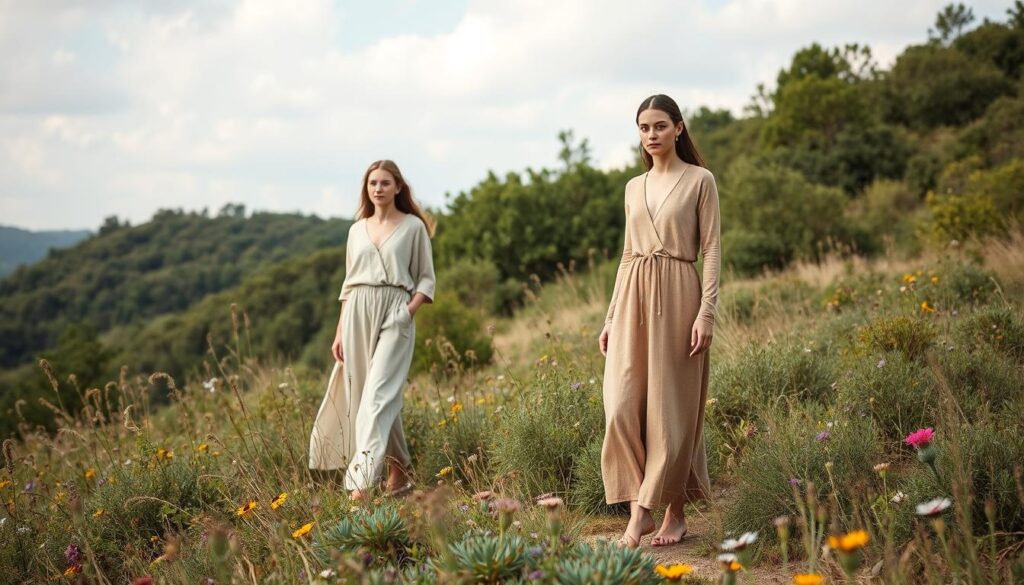
Quality Over Quantity: Investing Wisely
Building a minimalist wardrobe means focusing on quality over quantity. We should pick clothes that last, not fast fashion that fades quickly. By doing this, we create a wardrobe that’s both fashionable and kind to the planet.
| Sustainable Fashion Tips | Benefits |
|---|---|
| Invest in quality, timeless pieces | Reduced waste and cost savings |
| Choose eco-conscious wardrobe choices | Environmental benefits and a clear conscience |
| Adopt a capsule wardrobe approach | A more streamlined and organized wardrobe |
Circular Fashion Movement
The circular fashion movement is growing fast. People and brands want to cut down on waste and be more green. This is part of the bigger eco-friendly fashion trends for the future. It focuses on fixing and making things better, not just using and throwing away.
Looking ahead, sustainable fashion forecast will be key in changing the fashion world. By using circular methods like renting clothes and recycling, brands can lessen their harm to the environment. This helps in making the eco-friendly fashion industry grow.
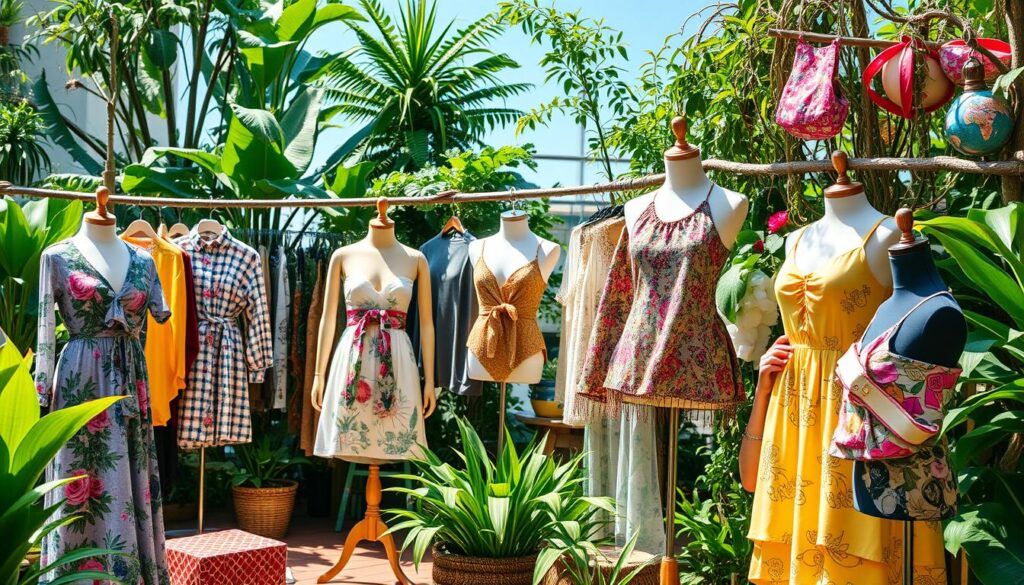
What is Circular Fashion?
Circular fashion means making products and systems that fix and improve things, not just use and waste. It uses green materials, cuts down on waste, and makes old stuff into new things.
Brands Embracing Circular Practices
Many brands are starting to use circular ways, like renting clothes and taking back old items. These steps help reduce waste and support sustainable fashion forecast. They also help the eco-friendly fashion industry grow.
By going for circular fashion, we can make the fashion world better for the future. It’s all about eco-friendly fashion trends for the future and keeping our planet healthy for everyone.
Technology and Sustainability
The fashion industry is changing fast, thanks to technology. Smart textiles and 3D printing are leading the way. These innovations cut down on waste and make new, cool designs possible.
More people want clothes that are good for the planet. Smart textiles are key in this trend. They can change color or pattern based on the environment, making fewer clothes needed.
Smart Textiles: The Future of Fabrics
Smart textiles are a big deal in eco-friendly fashion. They make clothes that are green, comfy, and work well. Here are some examples:
- Moisture-wicking fabrics that keep wearers cool and dry
- Thermoregulating fabrics that adjust to changing temperatures
- Antimicrobial fabrics that prevent the growth of bacteria and odor
3D Printing in Fashion
3D printing is changing fashion too. It makes quick, complex designs without much waste. It’s also great for making clothes just for you. We’ll see more of this in eco-friendly fashion soon.
The Role of Local Production
Exploring eco-friendly fashion trends, we see local production’s big role. Supporting local artisans helps reduce environmental harm from shipping. It’s a step towards a greener wardrobe.
Local production lets brands quickly adapt to trends, cutting down on waste. It also makes the production process more open and responsible. This ensures sustainable methods are used.
Some key benefits of local production are:
- Reduced carbon footprint
- Support for local communities
- Increased transparency and accountability
When we choose eco-friendly clothes, thinking about local production is key. Supporting local makers helps make fashion more sustainable. It’s a way to help the planet.
The future of eco-friendly fashion depends on us adopting sustainable practices. By choosing wisely and supporting local, we can make fashion better for all. This way, we ensure a greener future for fashion.
| Benefits of Local Production | Environmental Impact | Social Impact |
|---|---|---|
| Reduced carbon footprint | Lower greenhouse gas emissions | Support for local communities |
| Increased transparency and accountability | Improved working conditions | Increased transparency and accountability |
Consumer Awareness and Activism
We all have the power to shape eco-friendly fashion trends for the future by choosing wisely. By keeping up with the sustainable fashion forecast, we can help the planet. The eco-friendly fashion industry developments are always changing, and knowing this helps us make a difference.
Here are some ways to help:
- Supporting eco-friendly brands and their efforts
- Lessening fashion waste by using a capsule wardrobe or upcycling clothes
- Spreading the word about sustainable fashion on social media
Together, we can make the fashion world more sustainable. The eco-friendly fashion trends for the future are on the rise. Many brands are now focusing on eco-friendly fashion industry developments. Let’s keep pushing this movement and help the environment.
Looking Ahead: The Future of Eco-Friendly Fashion
The fashion world is changing fast, moving towards being more sustainable. Eco-friendly trends and a desire for green clothes are leading the way. This sets the stage for a bright future in eco-friendly fashion.
New materials like recycled and bio-fabrics will play a big role. They offer stylish, eco-friendly options. The circular fashion movement, focusing on reuse and recycling, will also grow. This shift towards sustainability is exciting.
As consumers, we have a big part to play in this change. Supporting brands that care about the planet and being mindful of our purchases is key. Together, we can push the industry towards a greener, more responsible future. Our actions can make a big difference for years to come.

